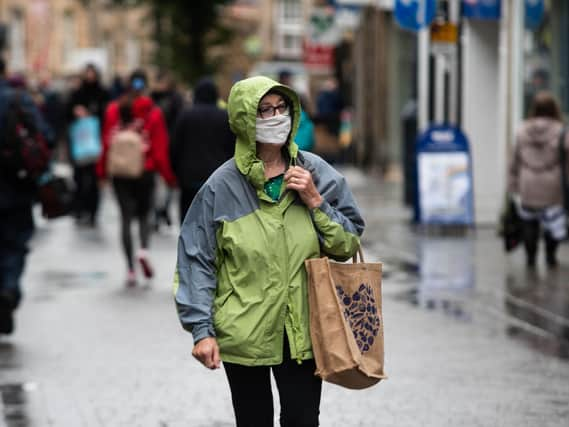Lancaster University researchers ask public how often they go out as a result of Covid-19


With social distancing restrictions easing across the UK, the researchers are looking at how the crisis is affecting social behaviour.
The results will be used to improve mathematical models of Covid-19 transmission in the UK, and to better predict where and when outbreaks may occur.
Advertisement
Hide AdAdvertisement
Hide AdThe research may also be used to inform contact tracing efforts and the NHS Test and Trace system.
Findings from the survey may also help provide evidence as to what restrictions might be relaxed further without risking an increase in transmission.
The Covid-19 Contact Network (CoCoNet) survey is an anonymous online survey which aims to measure how much social contact is happening between people in the UK during the Covid-19 pandemic by finding out:
*How often people leave their home
*How many people they encounter outside of their home
*The types of locations they visit when they are out
The survey, by Jessica Bridgen, Jonathan Read and Chris Jewell from Lancaster Medical School, also seeks to find out how common support bubbles are and who is forming them, and how many of our interactions are made outside in the fresh air.
Advertisement
Hide AdAdvertisement
Hide AdThe researchers are interested in seeing how much people are still socially distancing from others, and how the type of person you might correspond with the type of social interactions you make.
They are also keen to receive answers from people from different places in the UK, to see if variations in contact patterns may explain regional differences in Covid-19 infection rates.
PhD student Jessica Bridgen said: “As the pandemic has shown, the way that we meet and interact with each other is important for virus transmission.
"However, people’s lives are very different now compared to before the lockdown started, and are likely to continue to change as relaxation of the restrictions continue. So, it is important to understand exactly how often people are meeting each other at the moment.”
Advertisement
Hide AdAdvertisement
Hide AdThe survey - available online here - is completely anonymous and can be taken by anyone in the UK, of any age (the researchers ask children under the age of 13 to complete it with a parent or guardian).
“We encourage everyone who can take the survey to do so," Jessica said. "We need to hear from a wide range of people across the UK. The survey will only take about 5 to 10 minutes to complete.”
There is an option to provide an email address at the end of the survey but this will only be used to ask participants to re-complete the survey at a later date and be updated on our findings.
Future surveys will also be anonymous. All email addresses will be stored safely at the university, and not shared.
Comment Guidelines
National World encourages reader discussion on our stories. User feedback, insights and back-and-forth exchanges add a rich layer of context to reporting. Please review our Community Guidelines before commenting.